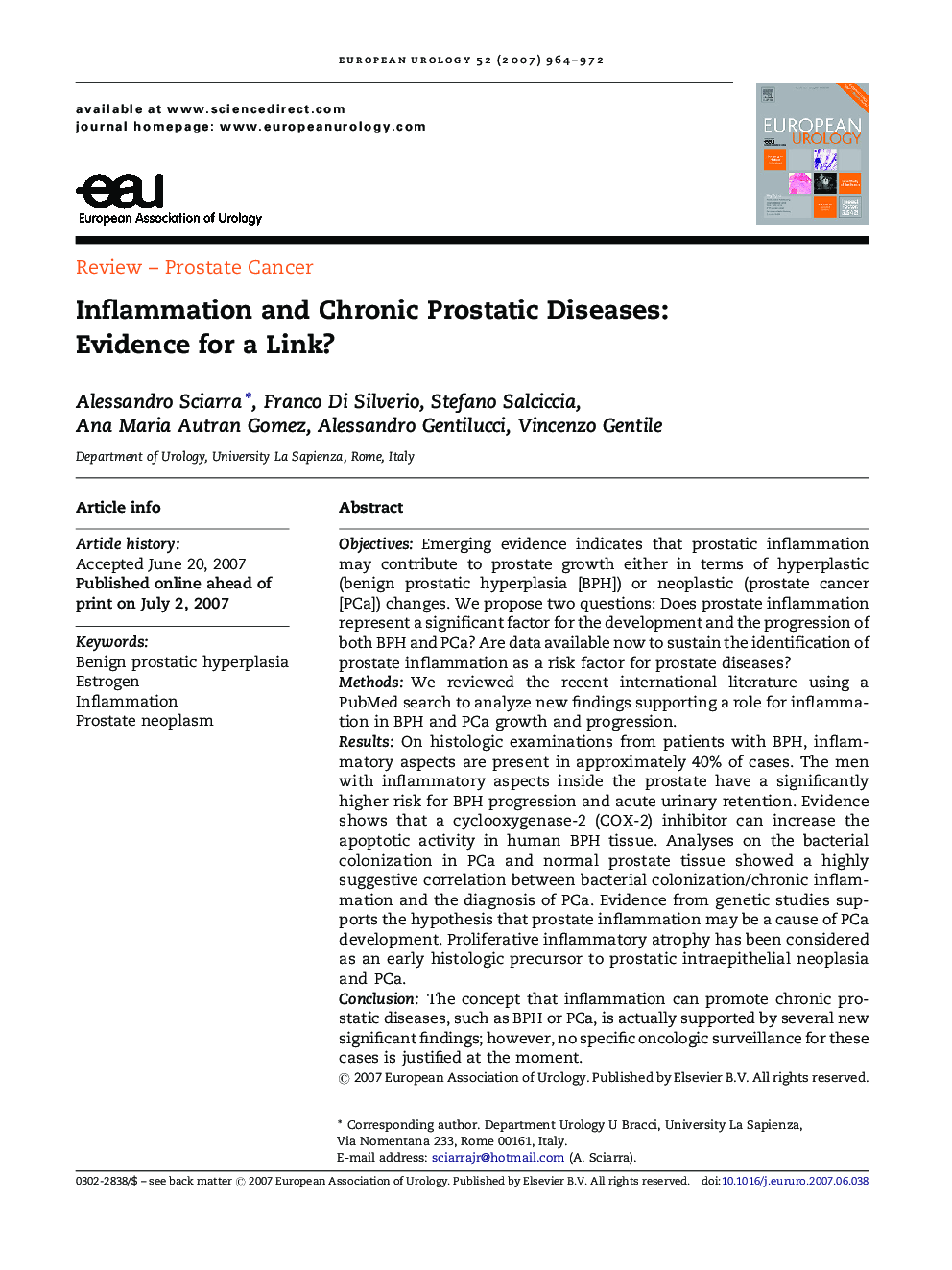| Article ID | Journal | Published Year | Pages | File Type |
|---|---|---|---|---|
| 3923329 | European Urology | 2007 | 9 Pages |
ObjectivesEmerging evidence indicates that prostatic inflammation may contribute to prostate growth either in terms of hyperplastic (benign prostatic hyperplasia [BPH]) or neoplastic (prostate cancer [PCa]) changes. We propose two questions: Does prostate inflammation represent a significant factor for the development and the progression of both BPH and PCa? Are data available now to sustain the identification of prostate inflammation as a risk factor for prostate diseases?MethodsWe reviewed the recent international literature using a PubMed search to analyze new findings supporting a role for inflammation in BPH and PCa growth and progression.ResultsOn histologic examinations from patients with BPH, inflammatory aspects are present in approximately 40% of cases. The men with inflammatory aspects inside the prostate have a significantly higher risk for BPH progression and acute urinary retention. Evidence shows that a cyclooxygenase-2 (COX-2) inhibitor can increase the apoptotic activity in human BPH tissue. Analyses on the bacterial colonization in PCa and normal prostate tissue showed a highly suggestive correlation between bacterial colonization/chronic inflammation and the diagnosis of PCa. Evidence from genetic studies supports the hypothesis that prostate inflammation may be a cause of PCa development. Proliferative inflammatory atrophy has been considered as an early histologic precursor to prostatic intraepithelial neoplasia and PCa.ConclusionThe concept that inflammation can promote chronic prostatic diseases, such as BPH or PCa, is actually supported by several new significant findings; however, no specific oncologic surveillance for these cases is justified at the moment.
